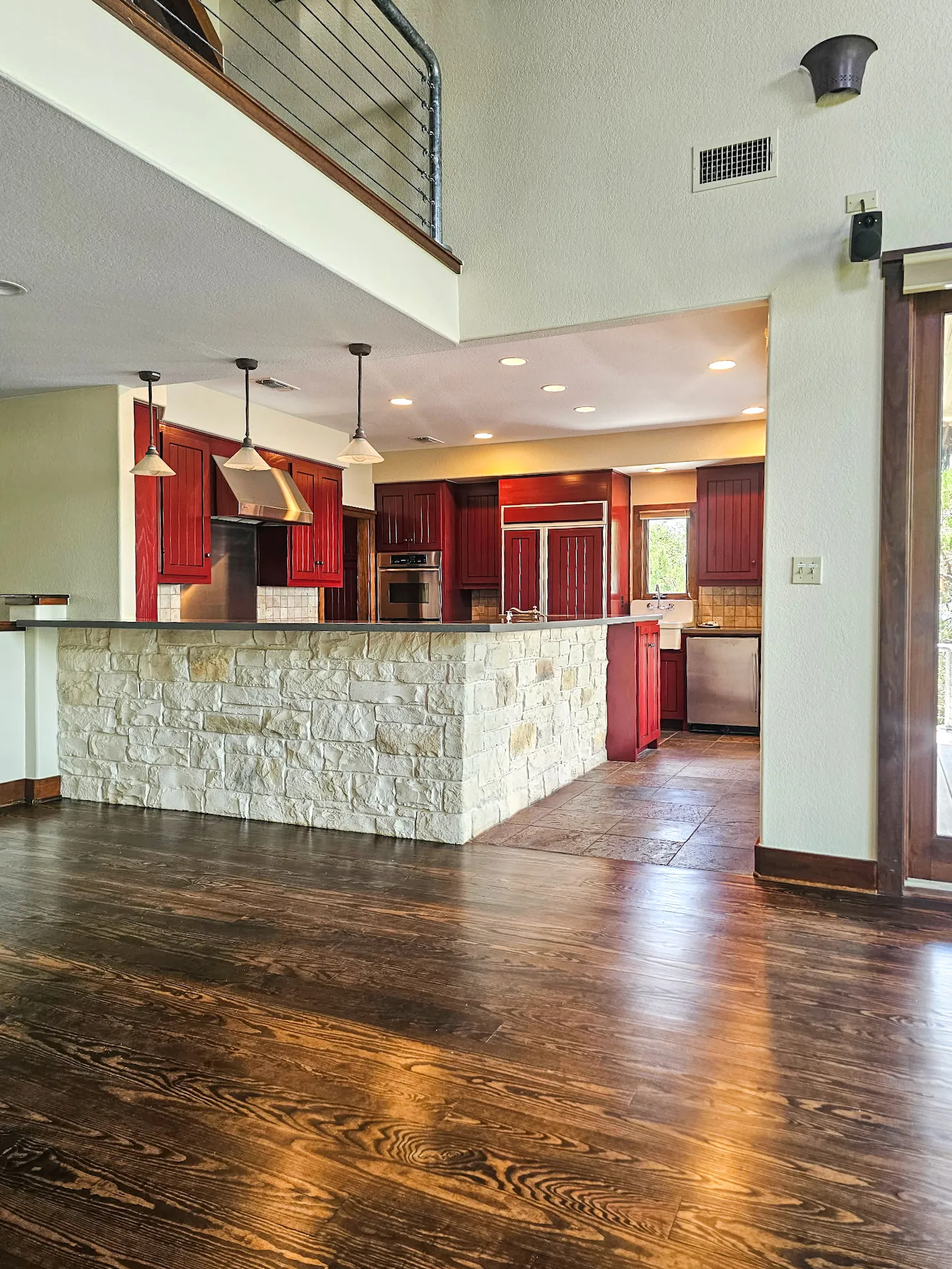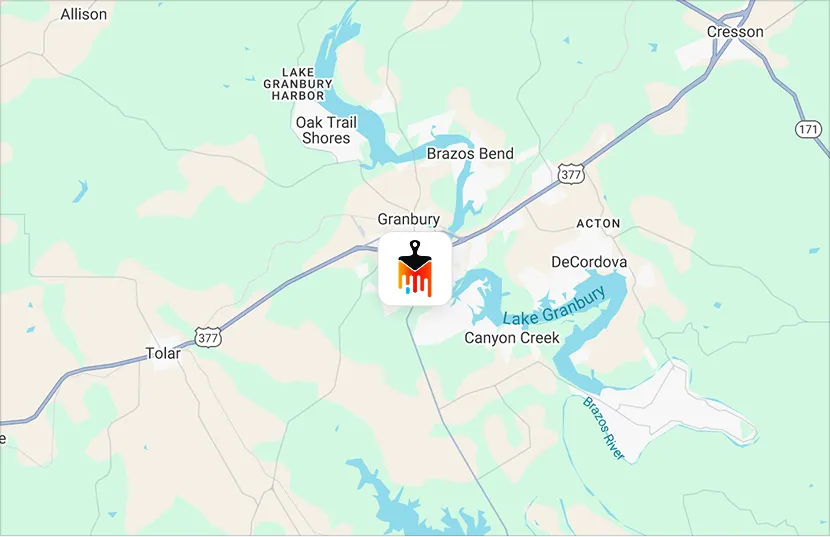Popcorn Ceiling Removal in Cleburne, TX
Popcorn ceiling removal in Cleburne, TX offers homeowners a clear, safety-driven path from inspection through completion. The guide covers testing for asbestos, proper containment, and dust control, plus removal methods, skim coating, and finishing options. Timelines, site protection, and cost guidance are included to help plan single-room renovations or whole-home updates. The content emphasizes moisture considerations, low-VOC finishes, and adherence to local regulations, ensuring a durable, modern ceiling and improved indoor air quality for Johnson County homes.

Popcorn Ceiling Removal in Cleburne, TX
Popcorn ceilings are common in mid-century and late 20th century Cleburne homes, but they can make rooms look dated, trap dust, and complicate decorating or lighting updates. Popcorn Ceiling Removal in Cleburne, TX offers a straightforward path to a clean, modern ceiling — but it starts with the right inspection and a safety-first approach. This page explains what to expect: the inspection and testing process, safe removal methods, dust containment and cleanup, repairs and skim coating for a smooth finish, retexturing or repainting options, realistic timelines, site protection, health and safety considerations, and ballpark cost estimates for homeowners in Cleburne and Johnson County.
Why remove popcorn ceilings in Cleburne homes?
- Older popcorn texture often contains fiberglass or, in homes built before the late 1970s, potentially asbestos. Cleburne’s housing stock includes many homes from those eras.
- Popcorn ceilings collect dust and cobwebs and can be difficult to clean, affecting indoor air quality in humid Texas months.
- Removing texture modernizes interiors, improves light reflection, and makes painting or installing new fixtures easier.
- Smooth ceilings increase home value and appeal to buyers who prefer contemporary finishes.
Common popcorn ceiling issues in Cleburne
- Crumbling or delaminating texture after seasonal humidity changes
- Stains from prior roof or plumbing leaks that are hard to conceal
- Multiple failed paint coats making removal more difficult
- Hidden asbestos in ceilings installed before asbestos restrictions
- Ceiling damage or uneven substrate revealed after removal needing repairs
Inspection and material composition testing
A safe project begins with a professional inspection to determine:
- Age of the ceiling and history of coatings
- Likelihood of asbestos-containing materials (ACM)
- Condition of the drywall or plaster substrate
- Accessibility and any nearby HVAC, lighting, or structural concerns
If there’s any suspicion of asbestos (common in pre-1980s popcorn), a small sample must be taken and sent to an accredited lab. That test typically takes 2–5 business days for results. If asbestos is present, removal is handled as abatement under local and state regulations with specific containment, disposal, and documentation requirements.
Safe removal methods and containment
Whether the ceiling is asbestos-free or not, dust and debris control is essential. Typical safe removal steps:
- Protect floors, walls, and fixtures with heavy-duty drop cloths and taped plastic sheeting.
- Seal doorways and vents to limit dust migration; isolate HVAC systems and cover returns.
- Use negative air machines and HEPA-filtered vacuums to capture airborne particles.
- Lightly mist the texture to reduce dust before scraping (only when asbestos testing is negative).
- Carefully scrape or use specialized removal tools to preserve the underlying drywall where possible.
- Bag and label debris for disposal in accordance with Johnson County and Texas regulations.
For confirmed asbestos, removal follows abatement protocols: full containment, specialized PPE for workers, certified abatement technicians, and designated disposal channels.
Repairs, skim coating, and finishing options
After texture removal the ceiling surface is rarely perfectly smooth. Common follow-up services include:
- Patching damaged drywall or plaster seams
- One or more coats of joint compound (skim coating) to create a uniform, flat surface
- Light sanding between coats and final sanding for a smooth finish
- Optional retexturing if you prefer a modern subtle texture
- Priming and repainting using low-VOC products suited to Texas humidity and sunlight exposure
A typical approach to achieve a smooth finish is two skim coats with proper drying time and a final fine-sand. For homes in Cleburne, choosing moisture-resistant primers can reduce future issues from humidity.
Timelines and project flow
Typical timelines (varies by home size, ceiling condition, and testing needs):
- Initial inspection and sample collection: same day or within 48 hours
- Lab results for asbestos testing: 2–5 business days
- Removal (single room, non-asbestos): 1 day for demolition and primary cleanup
- Repairs and skim coats: 1–3 days (including drying times)
- Priming and painting: 1 day for primer + 1 day for finish coatsOverall for a non-asbestos project: many single-room projects finish in 2–4 days; whole-house ceilings or complicated repairs commonly run 4–7 days. If asbestos abatement is required timelines extend due to compliance steps and disposal coordination.
Site protection and cleanup
- Floors, cabinets, and furniture are covered and protected.
- Work areas are contained with sealed plastic barriers.
- HEPA filtration and negative pressure reduce airborne particulates.
- Full cleanup includes HEPA vacuuming, wet wiping, and careful debris removal.
- Final walkthrough and before/after photos document the condition and completion.
Before/after photos are standard documentation and help homeowners see the transformation and verify cleanup quality.
Health and safety considerations
- Homes built before the 1980s should always be assumed to possibly contain asbestos until tested.
- Only accredited labs can confirm asbestos; certified abatement professionals should handle positive results.
- Proper PPE (respirators, suits, gloves) and HEPA-grade equipment protect occupants and workers.
- Air clearance testing after removal provides verification that the space is safe to reoccupy.
- Choosing low-VOC paints and primers helps maintain healthier indoor air in hot, humid Cleburne summers.
Cost estimates for Cleburne, TX
Factors that influence cost: ceiling square footage, ceiling height, condition of substrate, number of rooms, presence of asbestos, extent of repairs, and chosen finish (smooth vs retexture vs repaint only). Typical ranges:
- Non-asbestos popcorn removal: roughly $1.50 to $4.00 per square foot (removal only)
- Skim coating and smoothing: an additional $1.50 to $3.50 per square foot depending on number of coats and finish quality
- Repainting: $0.75 to $2.00 per square foot depending on primer and paint quality
- If asbestos is present, abatement costs typically increase significantly, often $6.00 to $15.00+ per square foot, reflecting containment, specialized labor, and regulated disposal
These are general ranges for Johnson County and the Cleburne area; a precise estimate requires on-site inspection and testing.
Final thoughts: long-term value for Cleburne homeowners
Removing popcorn ceilings modernizes interior spaces, improves natural light, simplifies future maintenance, and can add market appeal. In Cleburne’s climate, addressing ceiling damage and choosing the right primers and finishes prevents moisture-related issues down the road. Prioritizing inspection and safe practices, especially regarding asbestos, protects household health and ensures the job is done to code.
A careful inspection and clear scope based on test results will determine the right path for your home—whether smooth skim coat, updated texture, or fresh paint—to deliver a clean, durable ceiling that fits your design goals and Cleburne lifestyle.
Service Areas
Marin's Painting proudly serves a wide range of areas, ensuring top-quality painting services for both residential and commercial properties. Our team is dedicated to transforming spaces with precision and care.



